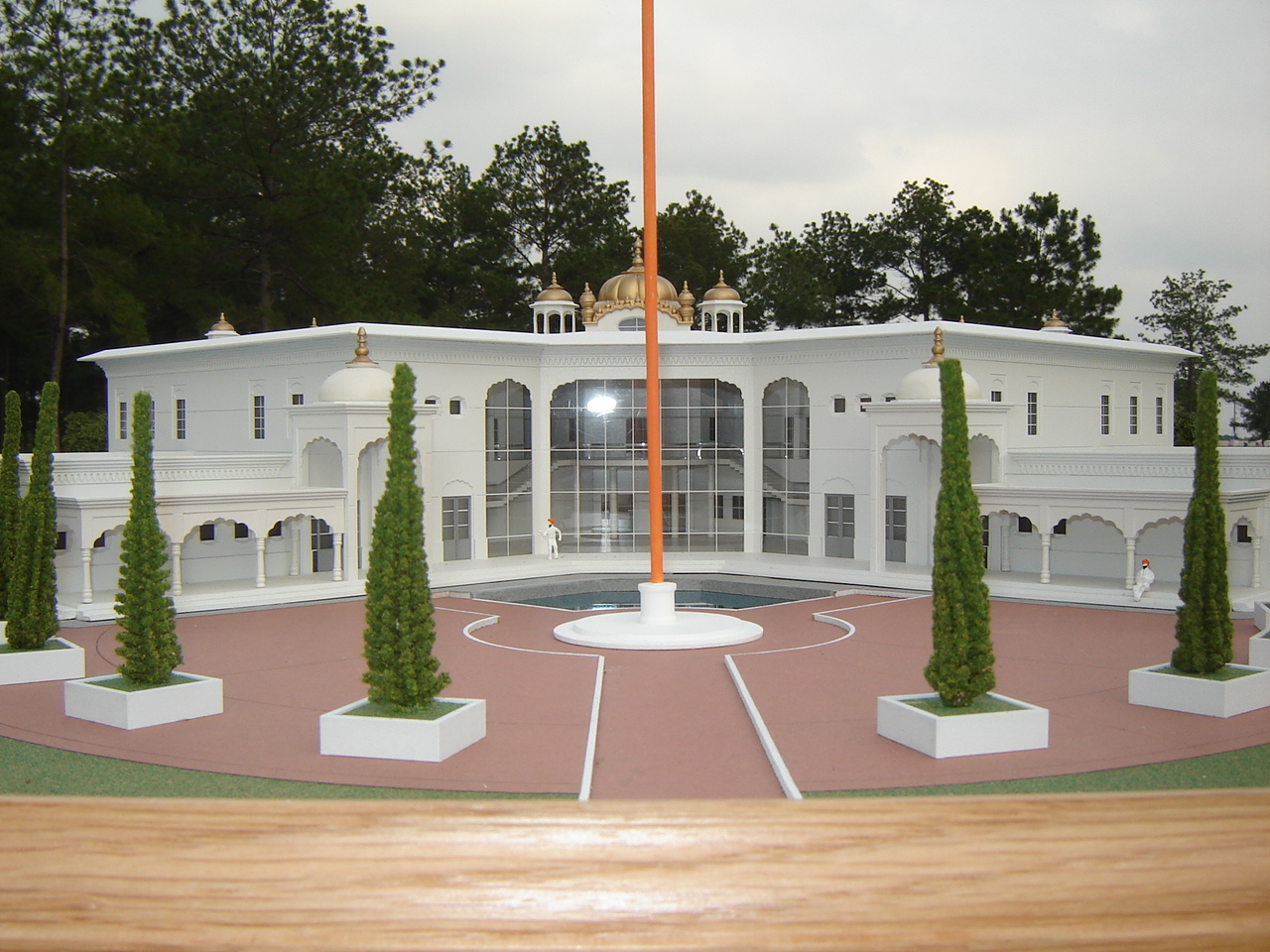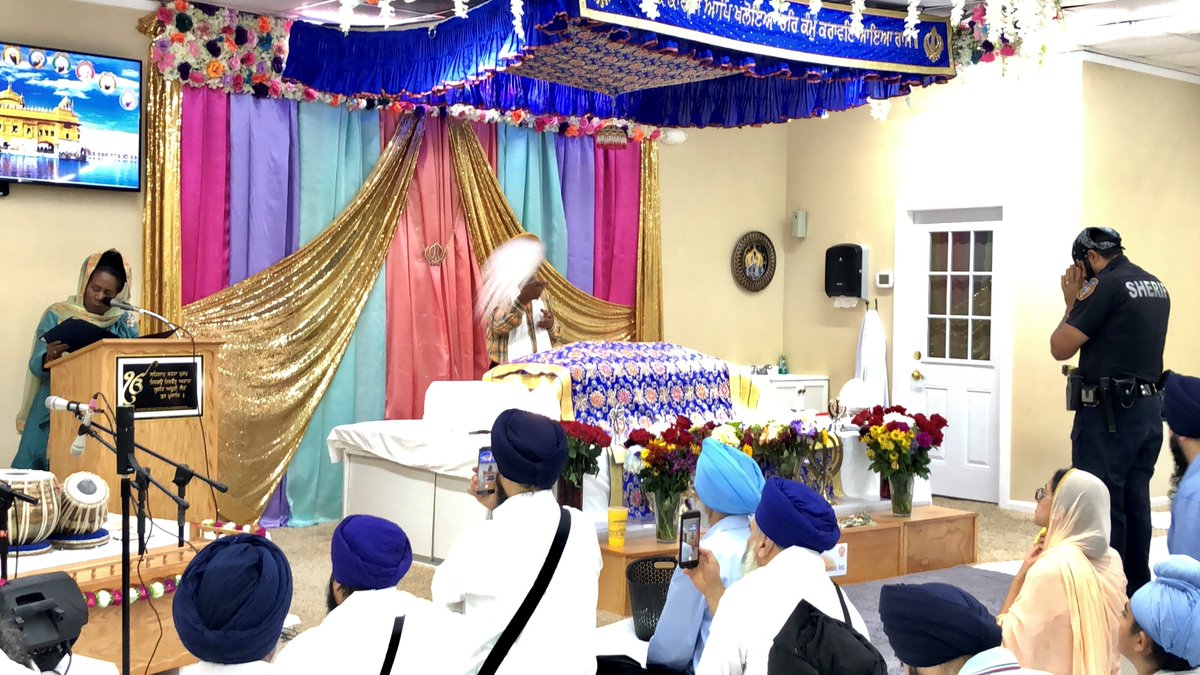Organization set up to provide help and raise money for those in need
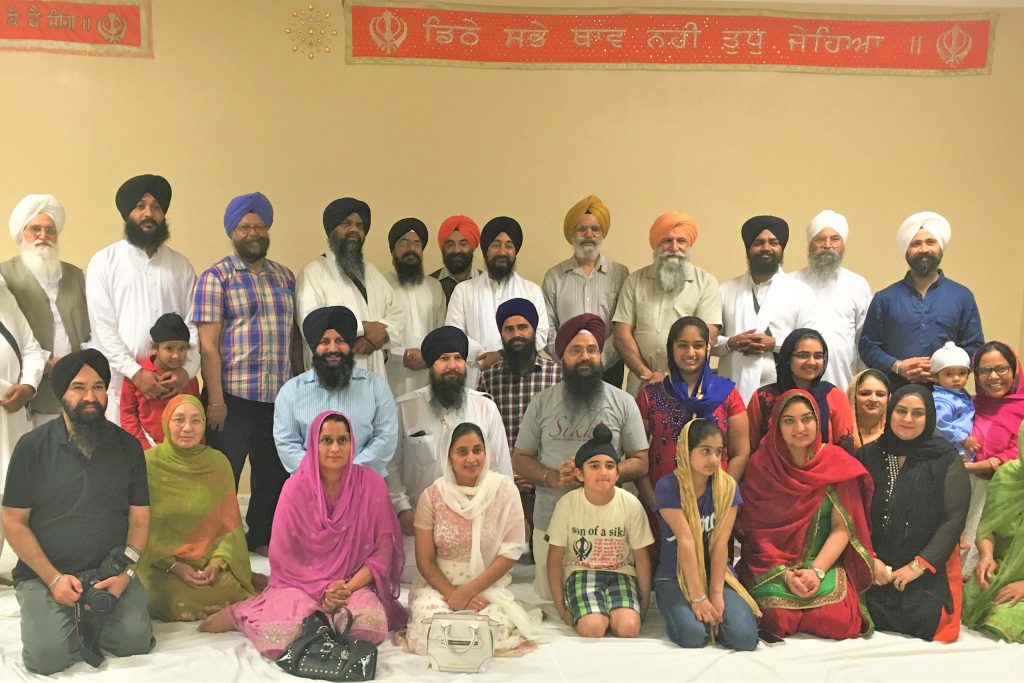
Sikhs in America
The Sikh religion is a relatively young religion that was founded over 500 years ago in the Punjab region which is now In Pakistan. In 1947 after Pakistan separated from India the Sikhs moved to India. There are more than 25 million Sikhs around the world, which makes Sikhism the world’s fifth-largest religion. Sikhs first came to the United States in the late 1800s and there are an estimated 500,000 Sikhs living in America today.
The Sikh religion is a relatively young religion that was founded over 500 years ago in the Punjab region which is now In Pakistan. In 1947 after Pakistan separated from India the Sikhs moved to India. There are more than 25 million Sikhs around the world, which makes Sikhism the world’s fifth-largest religion. Sikhs first came to the United States in the late 1800s and there are an estimated 500,000 Sikhs living in America today. Sikhs participate in every aspect of American life and are very patriotic and committed to the United States. There are more than 50,000 Sikhs living in the state of Texas. Sikhs have a distinctive physical appearance: wearing turbans, not cutting their hair or beards, and wearing steel bracelets as a symbol of strength and the eternal nature of God.
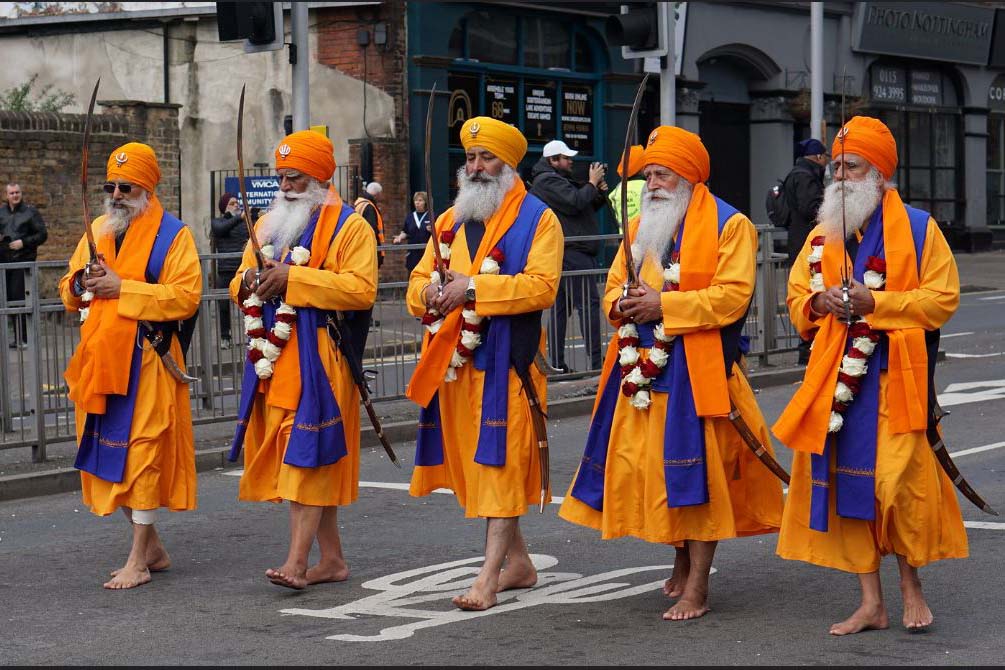
Faith & Identity
Since the formative moments of the tradition, Sikhs have maintained a physical identity that makes them stand out in public, This identity includes five articles of faith — kesh (unshorn hair), kanga (small comb), kara (steel bracelet), kirpan (religious article resembling a knife), and kachera (soldier-shorts) — and distinguishes someone who has formally committed to the values of the faith by accepting initiation. Perhaps the most visible aspect of the Sikh identity is the turban, which can be worn by men and women alike. For a Sikh, wearing a turban asserts a public commitment to maintaining the values and ethics of the tradition, including service, compassion, and honesty.
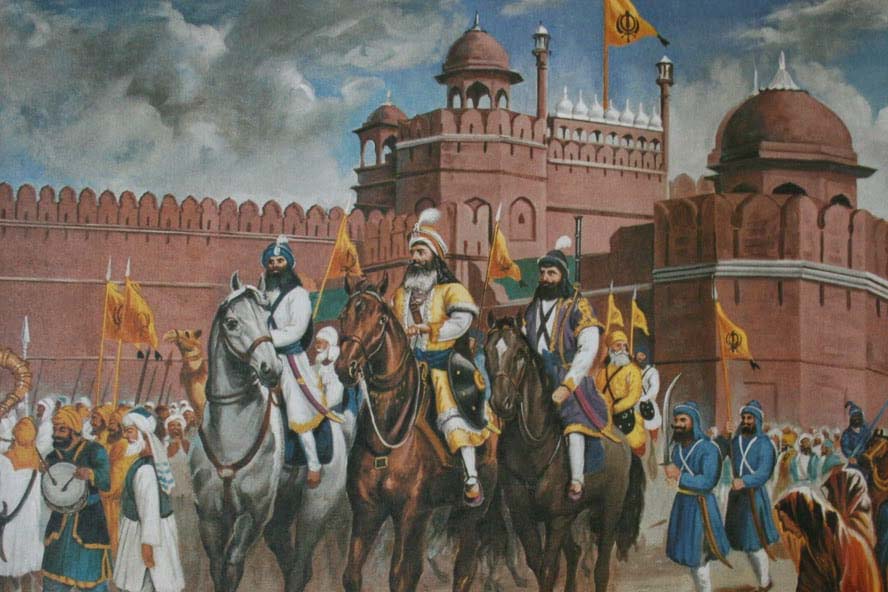
Who are Sikhs
The founder of the Sikh tradition, Guru Nanak, was born in the region of Punjab, now in Pakistan, in 1469 CE. He lived a life of spirituality, service, and honesty, and the disciples who began to follow his teachings came to be known as Sikhs. The Sikh community grew under the guidance of ten saints also called “Gurus” the last of whom Guru Gobind Singh Ji passed away in 1708 CE. The Sikhs now treat the scriptural text known as the Guru Granth Sahib as a living Guru, The Sikh scriptures were compiled by the 5th saint Guru Arjan and has parise of God in poetry.
Sikhism is monotheistic, worshiping the same God as other mainstream world religions. Sikhism preaches tolerance and absolute equality of all people without regard to gender, race, caste or creed. Sikhism emphatically denounces superstitions and blind rituals. The core values of Sikhism include hard work, spiritual living, humility, community service, standing up for justice and human rights and defending the defenseless.
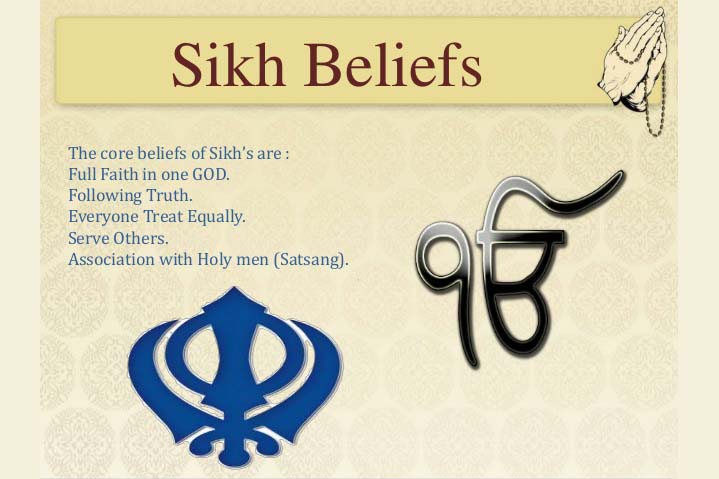
Beliefs
The Sikh worldview centers around the idea of oneness. Sikhs believe that people of all faiths worship one Divine Being who created this world and lives within it. The notion of divine presence leads to the belief that the Divine is equally present in all people, and that, therefore, every human being is equal in the eyes of God. The Sikh saints “Gurus” preached that you do not need any middle person like clergy or priests so each person can connect with the Creator directly. the Sikh religion teaches you to have the Saint and Soldier spirit equally. It also gives women equal rights. The fundamental beliefs of Sikhism, articulated in the sacred scripture Guru Granth Sahib, include faith and meditation on the name of the one creator, divine unity and equality of all humankind, engaging in selfless service, striving for justice for the benefit and prosperity of all and honest conduct and livelihood.
History of Sikh National Center
The Sikh National Center, Inc. (SNC), officially came into existence on March 12, 2003, when the Certificate of Incorporation was issued by the Office of the Texas Secretary of State.
It was born out of necessity because of the rapid increase of the Sikh population in the Greater Houston area of Southeast Texas. We were quickly outgrowing the small, aging Sikh Center Gurdwara. The location was also a concern because a huge landfill was being developed on the property behind the Gurdwara. Recognizing these limitations, a group of visionary Sangat members began to develop a plan looking toward the next 50 years and beyond.
Vision & Mission
South Texas area Sikhs resolved in 2003 to propagate and promote “Guru Granth” and “Guru Panth” integration by developing a unique Sikh National Center, Inc. in Houston, Texas. This Organization will focus on Sikh Religious, Educational, Historical and Cultural activities and programs. It shall teach and practice the fundamental human virtues embodied by the Sikh Religion such as Sat (Truthfulness), Santokh (Contentment), Dayya (Compassion), Dharam (Divine Order), Such (Purity of Conduct), Smaanta (Equality), Nekneeyati (Integrity), Sehansheelta (Tolerance), Nimrata (Humility), Sewa (Service), Swaibalidaan (Self-Sacrifice), Nirpakhta (Fairness), and Janhitkaarita (Philanthropy).
Its programs shall draw substance from the inspirational History of Sikhs, Sikh Scriptures and the Sikh Code of Conduct (Sikh Raihit Maryada) with a cosmic vision to serve the entire Humanity. This exemplary “National Center” of, for, and by the Sikhs shall tend to the dire needs of the oppressed, the sick, the needy, and the hungry. Here the realization of the full human potential will be pursued boldly with unwavering commitment to excellence in its programs, functions, and activities for all ages with a special focus on the youth and the elderly.
Programs in Gurdwara
Gurudwara Sahib is open every day of the week, and Nitnem Banies are recited every morning and evening. Regular Kirtan Diwan is held on Wednesday evening and Sunday afternoon and on all special occasions/Gurpurabs.


